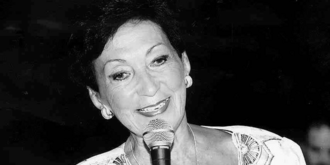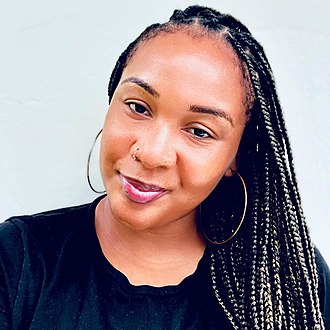Discover Your Roots
SIGN UPDiscover Your Roots
SIGN UPAmina is a female name of Arabic origin, meaning "Trustworthy" and "Honest." It is associated with the qualities of being devoted, straightforward, and worthy of belief. The name is derived from two Arabic variations: ʾĀmina, meaning "safe one, protected," and ʾAmīna, the feminine form of Amin. Amina is also the name of an African Queen, adding to its regal and powerful connotations. Notable historical figures bearing the name include Amina bint Wahb, the mother of Muhammad, and Amina, the Hausa warrior queen of Zazzau. Additionally, Amina has been borne by influential contemporary individuals from various fields, including politics, activism, arts, and entertainment. The name Amina carries a strong, positive significance, reflecting trustworthiness, honesty, and devotion, making it a popular choice for girls of Arabic heritage.

Amina Hanim (1770–1824) was the first princess consort of Muhammad Ali, the former Ottoman Wāli of Egypt and the first monarch of the Muhammad Ali dynasty. Born in Nikiforos, Rumelia, Amina was the daughter of Nusretli Ali Agha, the governor of Kavala. She married Muhammad Ali in 1787 and bore four sons and two daughters. Although she did not accompany Muhammad Ali to Egypt, she became estranged from him due to his acquisition of many slave concubines. Despite this, she was acknowledged as the first consort and was known for her grandeur during a pilgrimage. Amina Hanim died in 1824 and was buried in Cairo. Her life and role in the Muhammad Ali dynasty are detailed in works such as "Modernizing Marriage" by Kenneth M. Cuno and "Egypt in the Reign of Muhammad Ali" by Afaf Lutfi Sayyid-Marsot.

Amina Belouizdad, also known as Rabia Ali-Chérif, was a trailblazing figure in Algerian television. Born in 1931 in Algiers, she became the first female presenter on Algerian television and left a lasting impact on the country's media landscape. Belouizdad's announcement of the birth of the Algerian Radio and Television (RTA) Channel on October 28, 1962 marked a significant moment in the nation's history, influencing generations of Algerians during a time when RTA was the sole available channel. Before her television career, Belouizdad was married with three sons and worked to supplement the family income. She joined the French Radio and Television (RTF) channel as a bilingual presenter, using her celebrity status to support imprisoned activists during the Algerian revolution. Belouizdad's career as a presenter continued until her retirement in 1982, and even after retiring, she remained a cultural reference, particularly for Chaabi and Andalusian music, which she was passionate about. Amina Belouizdad passed away on September 29, 2015, at the age of 83, following a stroke. She was laid to rest in the cemetery of Sidi M'hamed in her native district, leaving behind a legacy of groundbreaking achievements in Algerian television.

Amina Barcham Bakhit, born on November 14, 1990, is a renowned Sudanese middle-distance runner. She gained international attention when she competed in the Women's 800 meters at the 2012 Summer Olympics. Notably, she clinched the gold medal in the 800 meters at the 2007 Pan Arab Games, and also secured a bronze in the 10,000 meters at the 2011 Pan Arab Games. However, Bakhit faced a setback when she tested positive for norandrosterone during a competition in Sollentuna, Sweden in June 2009, leading to a two-year ban from sports. Nevertheless, she overcame this obstacle and made a successful return to the track after the ban was lifted on July 16, 2011. Despite the challenges she encountered, Amina Bakhit continues to be recognized for her significant contributions to the world of athletics. For more information, you can visit Amina Bakhit's profile on World Athletics and the Olympics at Sports-Reference.com (archived).

Amina Azimi is a passionate advocate for disabled women's rights in Afghanistan, recognized for her impactful work with the prestigious N-Peace Award in 2012. Born in Afghanistan during the 1980s, Azimi faced adversity at a young age when she lost her right leg due to the Afghan Civil War. This experience exposed her to the challenges that disabled individuals encounter in a country with a high percentage of disabled citizens. Despite facing discrimination in education and employment, Azimi persevered and became a prominent voice for disabled women in Afghanistan. In 2007, she established the Women with Disabilities Advocacy Committee (WAAC) and later founded the Empowering Women with Disabilities organization (EWD) in 2011. Azimi's remarkable efforts were recognized with the N-Peace Award, honoring her as an Emerging Peace Champion. Through her work as a presenter and journalist for the radio program Qahir-e-Qahraman, Azimi has actively advocated for the rights of landmine survivors, demonstrating her unwavering commitment to empowering and supporting marginalized communities. Currently, she is affiliated with the Afghan Landmine Survivors' Organisation (ALSO), continuing her impactful advocacy work to create positive change for disabled individuals in Afghanistan.

Amina Doherty, a Nigerian/Antiguan feminist, artist, and women's rights advocate, is known for her impactful work in social justice and philanthropy. With a bachelor's degree in Political Science & Women's Studies from McGill University and a master's degree in Gender, Development and Globalisation from the London School of Economics, Amina has built a career dedicated to empowering women and advocating for gender equality. She has held key positions at organizations such as FRIDA | The Young Feminist Fund and the Association for Women’s Rights in Development. Currently serving as the program director for the Women’s Voice and Leadership-Caribbean Project at The Equality Fund, Amina continues to be a driving force in feminist organizing and global philanthropy. Her contributions have been recognized on various platforms, including the United Nations General Assembly and the African Women's Creative Non-Fiction Writing Residency. Amina's work has been featured in media and publications, showcasing her commitment to changing lives and advocating for women's rights. Amina Doherty's influence extends globally, and her dedication to social justice continues to inspire and empower others.
All images displayed on this page are sourced from Wikipedia or Wikimedia Commons.We use these images under their respective Creative Commons or public domain licenses. Wherever applicable, author attributions and license information are provided. If you believe an image is used incorrectly or outside its license terms, please contact us so that we can review and correct the issue.